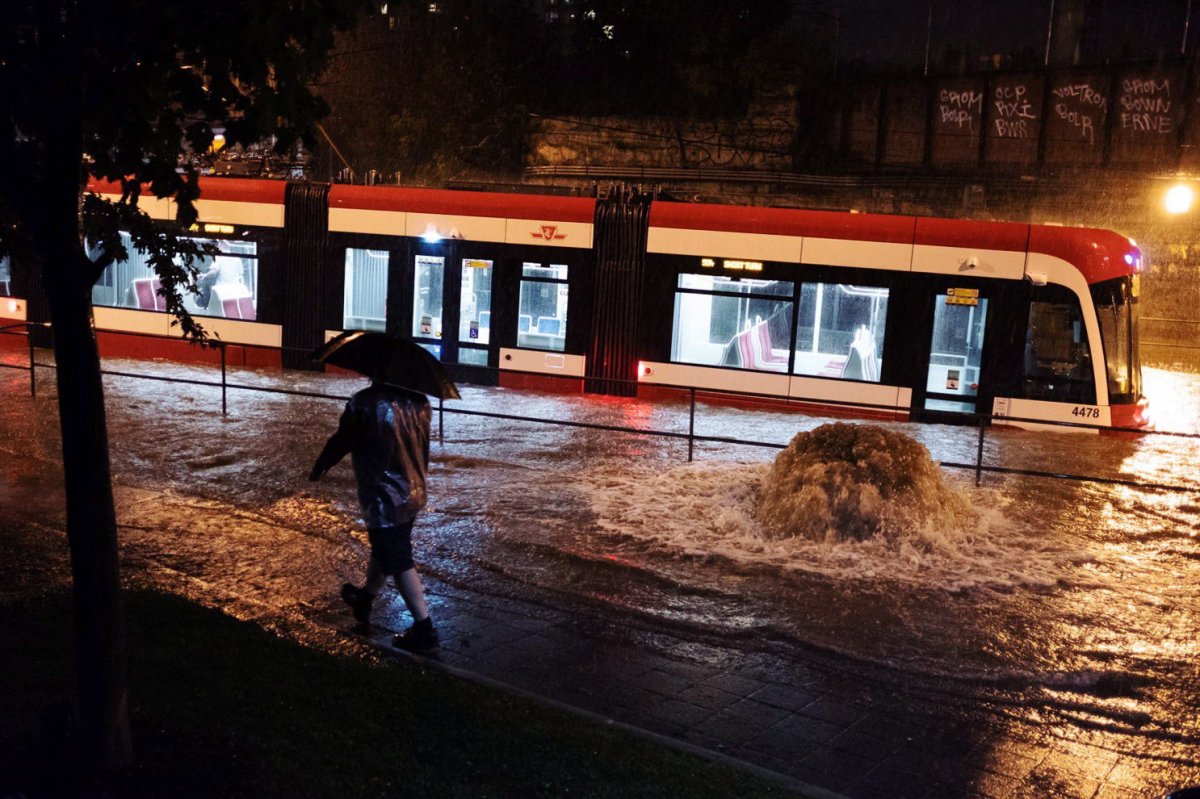Toronto is hitting the pause button when it comes to consultation meetings that were set to begin next week looking at the public appetite for a shakeup to how it charges people for excess stormwater coming off their property.

The city was in the midst of a public awareness campaign, sending out mailers to residents asking them to provide feedback in an online survey and to register for upcoming virtual public meetings over the next two weeks.
But now, the city is pausing those consultation meetings while it figures out how the surcharge would align with the city’s other ongoing plans. City spokesperson Russell Baker said those include the city’s climate resilience strategy, commercial parking levy and long-term financial strategy.
Baker said the proposal wasn’t going to create a net new tax, but would take out the current stormwater charge that shows up on residents’ utility bills and replace it with a clear line item so taxpayers know exactly what they’re paying for. Baker said the surcharge would explain how a resident’s large driveway, backyard concrete pad, or sizable roof is contributing to the runoff rainwater by not allowing it to absorb into the ground.
Previous city councils have looked at the proposition for years, going back to about 2012. This appeared to be the first opportunity it would be moved forward, until the sudden about-face.
Mayor Olivia Chow said before the city changes its approach to stormwater, it first needs to help homeowners figure out how to make improvements to their properties.
“How to make their land more porous, by giving them information, financial incentives, so they know how to switch to prevent the flooding that may happen when a big storm comes,” Chow said.
- Ontario midwives can now administer routine vaccines, prescribe more drugs
- Cyclist in life-threatening condition after being hit by vehicle in Mississauga: police
- Pro-Palestinian encampment remains at University of Toronto despite safety concerns
- Ford’s Progressive Conservatives win both Ontario byelections
Chow said she and Deputy Mayor Jennifer McKelvie will be working closely with the city’s water division to begin developing incentives for people to move away from hard services. “But the consultation is now paused,” she said. Chow didn’t say when the consultations may resume.
But Chow said she remains in favour of finding ways to improve the city’s approach to heavy rainfalls to avoid flooding and the closure of city beaches when treated sewage is forced into Lake Ontario.
McKelvie, who also chairs the city’s infrastructure and environment committee, said the city needed to be able to communicate the problem that it wants to solve.
“And that is preparations for climate change, we know we will have wilder, wetter weather; we need to prepare for that,” she said. “But we have multiple strategies and it’s important that we don’t look at those strategies in a silo.”
Before the consultations had even begun, the surcharge had already been dubbed a “rain tax” by several columnists, garnering negative international press. But Chow insisted the pause on the consultations wasn’t related to those reports.




Comments